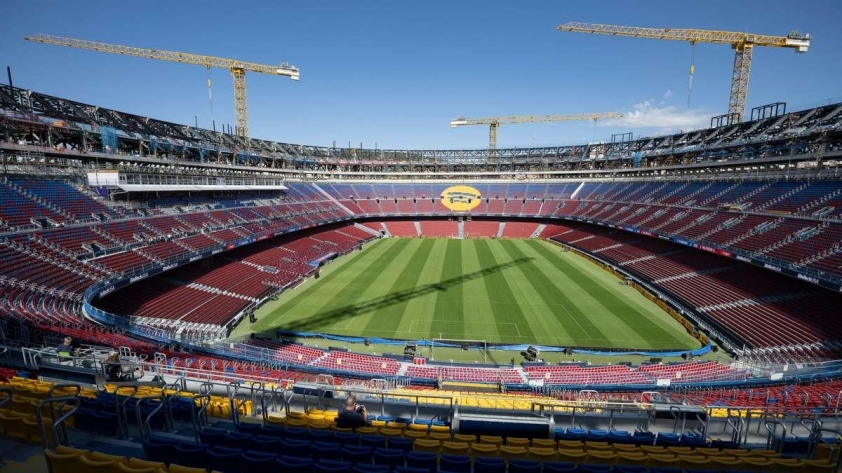Barca faces a persistent nightmare
Barcelona remains financially strained due to the postponement of Camp Nou’s reopening, compelling the club to use Montjuïc stadium at a massive expense, which heavily affects their seasonal strategy.
The delays at Camp Nou are adding financial pressure on Barcelona, forcing the Catalan team to keep playing temporarily at Montjuïc. Each match at Estadi Olímpic Lluís Companys costs Barca a substantial amount, as confirmed by institutional vice president Elena Fort, while the club manages the wait for the legendary stadium’s reopening.

Barcelona will host Real Sociedad at Estadi Olímpic Lluís Companys in La Liga instead of Camp Nou. The plan to return to the home stadium after renovations has been postponed multiple times due to incomplete safety and operational permits. The earliest possible match at Camp Nou is now scheduled for October 18 against Girona, more than a month after this weekend’s game. These delays force Barca to adapt, relying on Montjuïc’s 55,000-seat capacity to welcome fans and sustain the season.
Every away game from Camp Nou comes with heavy costs for Barca. Fort revealed on the show “Tu Diras” that the club pays between 300,000 and 900,000 Euros per match at Montjuïc, averaging about half a million Euros. This is a significant burden compared to the limited revenue from Johan Cruyff Stadium, which holds only 6,000 seats, where Barca played two early-season matches. With many upcoming home games at Montjuïc, including the clash with PSG in the Champions League, these expenses will rapidly increase.

The 1.5 billion Euro Camp Nou renovation project began in June 2023 aiming to modernize and increase capacity to 105,000 seats. Initially, the reopening was planned for November 2024, coinciding with the club’s 125th anniversary. However, progress is slower than expected due to safety inspections, fire prevention, and pending operational permits. Meanwhile, Barca temporarily uses Johan Cruyff Stadium for some matches, but its limited revenue means Montjuïc remains the necessary venue for major fixtures.
The club has expressed gratitude to fans for their understanding amid the complex Camp Nou project. Chief Operating Officer Joan Sentelles emphasized: “The stadium not being finished doesn’t mean it’s unsafe,” while Deputy Mayor Laia Bonet affirmed that public safety remains the top priority. Barca continues to work with city authorities to obtain phased permits, balancing safety requirements, finances, and sporting considerations.
For now, Barcelona will focus on home matches at Montjuïc, including the La Liga game against Sociedad and the big Champions League match versus PSG on October 1. Once the usage permit for Camp Nou is granted, the club hopes to return to its familiar “home,” starting with the match against Girona on October 18. However, the full reopening timeline still depends on safety approvals and construction progress. Meanwhile, Barca must maintain sporting ambitions while managing finances during the final phase of one of football’s largest stadium projects.











 Links
Links
 Contact
Contact
 App
App


